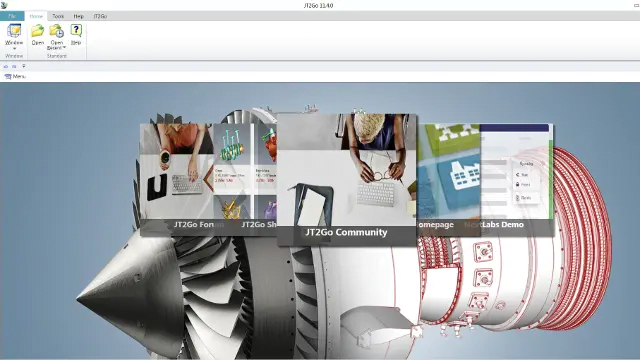
Why Supplier Management Matters for Your Business. Successful supplier management can make or break your business.
Sourcing materials may seem like one small part of your manufacturing business’s total activity, but it’s a crucial element of a successful value chain. Your business’s bottom line relies on quality supplies coming from reliable business partners. Read on to learn more about how supplier management affects your business and how to strategically manage relationships with your suppliers.
What is supplier management?
It may be helpful to begin by outlining what supplier management isn’t. Supplier management is not merely the procurement of materials. Rather, it is the how and why your company purchases those materials from suppliers and how value is gained from that process.
Supplier management is creating and fostering relationships with outside organizations that provide materials and services that support your company’s bottom line. Like any other business process, supplier relationship management requires effort and evaluation to ensure it is driving value for your organization.
Benefits of supplier management
Implementing an effective supplier management strategy will directly impact the quality of your own products, smooth out business processes, increase customer satisfaction and help your company meet its short- and long-term goals.
Strong relationships with reliable suppliers will ensure that consistent quality materials are received on time, allowing you to meet and improve turnaround times, ensure a smooth workflow and best serve your customers.
Additionally, supplier management is a form of risk management, so a well-structured supplier management strategy will mitigate supplier risk. Supply chains are a source of risk to business continuity and finances and can be a source of ethical risk as well. Supply chain management will allow you to uphold your business’s values and gain competitive advantage by generating strategic relationships between you and your suppliers.
Key factors of successful supplier management
Effective supplier management policies
To successfully manage your supply chain, you need a set of guidelines, terms and conditions for starting and maintaining relationships with suppliers. These will set expectations for each party that ensure quality, consistency and transparency in the business partnership. Supplier relationship management policies can also include incentives for high-quality delivery and penalties for non-compliance.
Building a solid supply chain
Deliberately structuring a supplier base is an essential part of effective supplier management. The COVID-19 pandemic has exposed flaws in supply chains of all scales around the world. Implementing a supplier management strategy with tactics like multisourcing, nearshoring and diversification strengthens your overall supply chain and improves flexibility and competitive advantage because you will be able to serve your customers when your competitors may not.
Contract management
A strong supplier management strategy will have a method for negotiating, drafting, approving and updating legal contracts between your organization and its suppliers. Contracts are a necessary part of doing business because they outline how the needs of each party (like your company and its supplier) align. Always keep your legal team directly involved as you ensure the supplier agreements are accurate with up-to-date information about pricing, invoicing, and terms and conditions. If possible, use automation in the contract generation and update process to reduce the time spent on drawing up contracts.
Supplier performance management
Like any other business process, the performance of your supplier management strategy must be evaluated. Track and analyze supplier data with deliberately benchmarked KPIs to ensure that business goals are on track to be met. Regularly update supplier scorecards so you know which relationships are working and which may need to be reconsidered. Use the metrics collected to use as support for amending or ending contracts. Always maintain a clear line of communication with suppliers so they are aware of their performance and its impact on your organization’s goals.
The supplier management process
- Supplier qualification: Making sure suppliers are a good match for your company begins with identifying your goals and needs for taking on a new supplier. With that information, you can begin determining selection criteria for suppliers and researching those in the running based on information from the supplier itself, its reputation in the industry and any past work they have done.Once a supplier has been selected, it’s time to negotiate terms and draw up a contract with involvement from both legal teams and all stakeholders in the new partnership. This step isn’t a competition—collaborate with your new supplier on the contract. Then, work on onboarding your new supplier so you can begin working together quickly and effectively.
- Classification: By classifying your suppliers, you’re putting yourself in the best position to manage them effectively and successfully plan short- and long-term business activities. Categorize suppliers based on which needs they fill for your company.
- Collaboration: For a successful partnership between your company and its suppliers, clearly communicate your organizations’ business needs and strategic goals and listen to theirs in return. Involve your suppliers in relevant decision making processes to reinforce the partnership. A good relationship with suppliers increases the value of the partnership and adds efficiency to your company’s supply chain.
- Evaluation: Setting benchmarks and monitoring scorecards is the best way to derive value from your entire supply chain. Keeping track of KPIs pertaining to your supply chain will ensure you’re on track to meet your production goals and will provide insight into where there are opportunities for optimization. Share relevant data, like delivery times and quality, with suppliers to promote transparency in the relationship and to build trust.
PLMES enables effective supplier management
PLMES’s cloud-based solution for supply chains will assist you in finding and onboarding new suppliers, manage relationships and monitor supplier quality. To learn more about how PLMES’s supplier relationship management features can help your company meet its business goals, schedule a demo today.

Don’t hesitate to contact Thanh for advice on automation solutions for CAD / CAM / CAE / PLM / ERP / IT systems exclusively for SMEs.
Luu Phan Thanh (Tyler) Solutions Consultant at PLM Ecosystem Mobile +84 976 099 099
Web www.plmes.io Email tyler.luu@plmes.io
